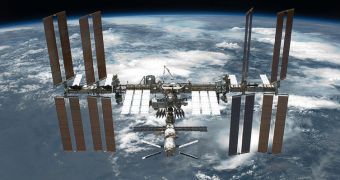Shortly after the space shuttle Atlantis docked to the International Space Station (ISS) on Sunday, July 10, NASA mission controllers began tracking and monitoring a set of space debris that pose a danger to both spacecraft as they spin around the planet.
The space junk is apparently on an orbit that takes it very close to both the station and the shuttle. At this point, mission controllers are still refining the object's trajectory, trying to determine how close it will come to the orbital lab.
Once this is done, experts at NASA will know if they need to instruct the ISS crew to boost altitude, or take other types of evasive maneuvers to avoid contact. “We will work through our normal procedures and processes for dealing with that,” LeRoy Cain said yesterday.
“What we were told today was very preliminary,” added the official, who is the chair of the Atlantis mission management team at NASA. He explained that the space junk is most likely a piece of a defunct Russian satellite.
At this point, the size and orbit of the debris are not well known, but NASA experts said that the objects are part of a catalog of known space junk. Early analysis indicates that the objects will pass closest to the station on Tuesday (July 12), Space reports.
At that time, NASA astronauts and Expedition 28 mission engineers Ron Garan and Mike Fossum will be conducting an extravehicular activity (EVA) outside the ISS, so it's absolutely necessary that mission controllers know precisely what path the junk will take.
“In all likelihood, it would not interfere with what we're doing on the spacewalk,” Cain explained. He added that Atlantis' onboard thrusters and orbital maneuvering engines can be used to nudged the ensemble in any direction mission controllers see fit.
Events such as this one are “not uncommon. There's a lot of junk in orbit. We have a very good process for knowing where they are and how to avoid them in cases where we need to avoid them. It's not unusual to have to deal with it,” Cain added.
In the worst-case scenarios, Atlantis' crew can take refuge on the shuttle, while the six astronauts of Expedition 28 can evacuate the station aboard the two Russian-built Soyuz space capsule that act as permanent lifeboats.

 14 DAY TRIAL //
14 DAY TRIAL //